
Rotary Club of Powell River
prrotaryclub.org

City discusses keeping property taxes down
PAGE 4
PROUD PLAYER
Duncan McDonald reflects on national honour
PAGE 8


Rotary Club of Powell River
prrotaryclub.org

City discusses keeping property taxes down
PAGE 4
Duncan McDonald reflects on national honour
PAGE 8
Qualification exams for Canada require patience and resilience, says Dieudonné
TANYA HILL thill@prpeak.com
Dieudonné Mugenti grew up with his family in the Democratic Republic of the Congo (DRC), which geographically has many high plateaus, mountains and the Congo basin, a vast rolling plain with an average elevation of about 520 metres above sea level.
In 1996, conflict broke out in his home country that led to millions of deaths and thousands of people being forced to flee; many eventually became refugees and asylum seekers to Canada, including many of Mugenti’s siblings, who ended up in the qathet region.
Mugenti went to university in the city of Bukavu in the DRC and graduated as a doctor of medicine.
“I was an asylum seeker,” said Mugenti. “My siblings came here before me, so I came to join them in 2019.”
A group in qathet called Hands Across the Water was an integral part of reuniting Mugeni, his wife and two young children with his family members in this region.
Mugeni said when his siblings arrived, they felt welcome, and since his arrival six years ago, he has fully embraced life on the coast, while at the same time, studying to become a qualified general practitioner in Canada, which is not easy.
“I am preparing for some exams for the Medical Council of Canada,” said Mugeni. “Everybody knows









there is a big need for doctors in Canada; almost 20 per cent of Canadians do not have a primary care doctor.”
Mugeni said estimates indicate that almost 20 per cent of doctors currently practicing are preparing to retire, and he hopes the government will respond to that.
“Usually there are two big exams for the Medical Council of Canada,” said Mugeni. “So if I pass those two exams, then I become a licentiate of the Medical Council of Canada, then I can do a few more smaller exams, and then I can be ready to apply for a residency program.”
Each province has its own examinations. Mugeni has already passed part one and is preparing for the second exam.
“I’ve been studying a lot, because they are very difficult, very challenging,” said Mugeni. “They require patience, endurance, but also resilience.”
When Mugeni finished his medical studies in the DRC he moved to Namibia, which is an English speaking country, and had the chance to improve and practice his language skills.
“I’ve worked at Brooks [Secondary School] as an education assistant for [qathet] School District for five years now,” said Mugeni. “People here are very welcoming, and very kind.”
Mugeni said although he is busy studying, he likes to jog, cycle and hike, even if it’s raining.
“During the winter break, I was very busy hosting my siblings from all around; some came from Vancouver,” said Mugeni. “I believe 2025 will be a beautiful year, and I really look forward to a new beginning here [as a practicing doctor].”


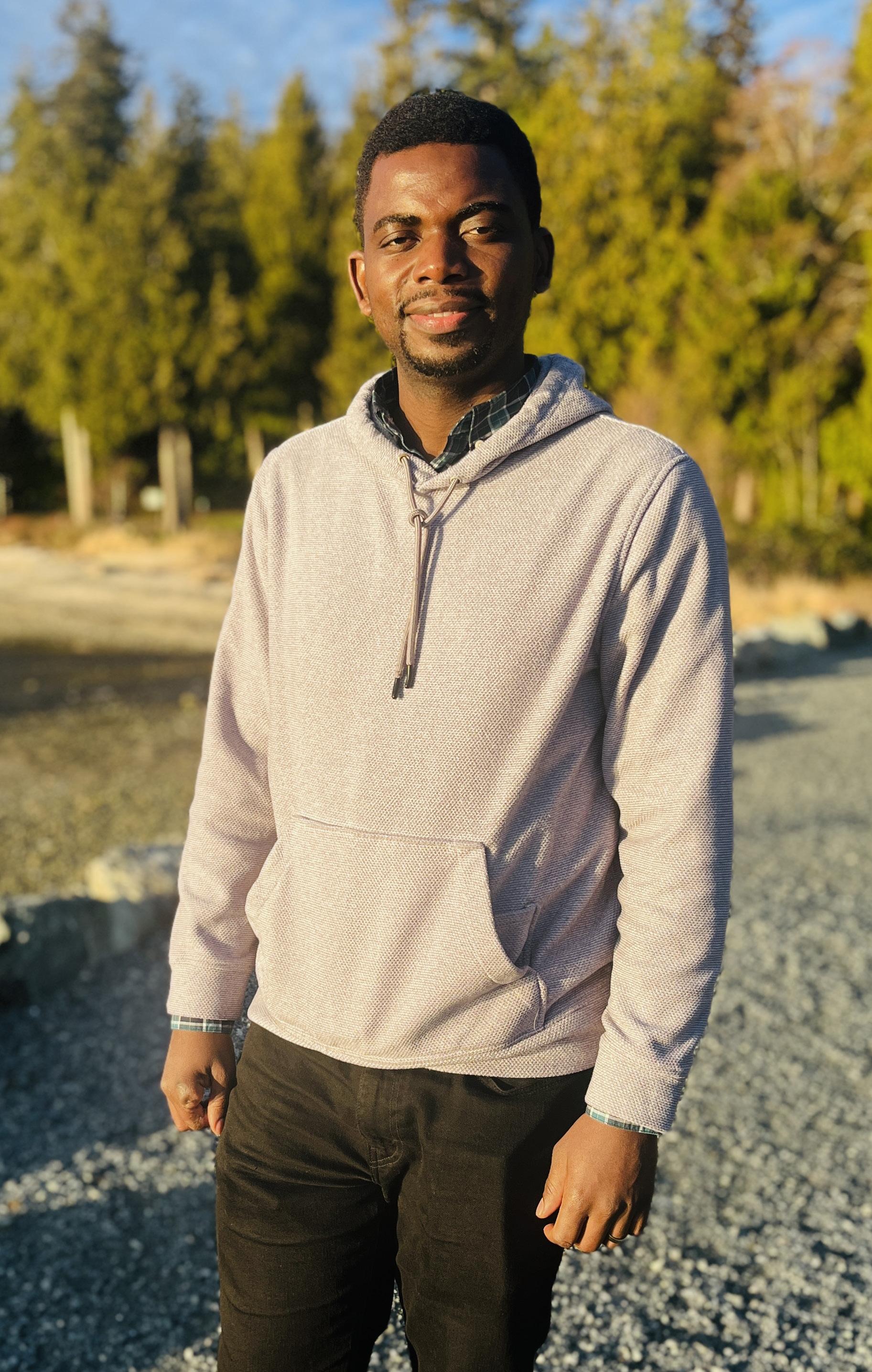






PAUL GALINSKI reporter@prpeak.com
City of Powell River staff and elected officials gathered in council chambers on January 16 for an open house with taxpayers to review the 2025 to 2029 fiveyear financial plan.
Those attending were able to speak with the city representatives, hear about budgetary plans and provide input.
Townsite Ratepayers Society president Diana Collicutt, after the meeting,
position city council is in.
“I know it’s challenging, and everybody wants to do a good job, but ever since the mill has had tax breaks, and now with the mill shut down, there has just been this spending as usual; it has been status quo and the city keeps taxing the residents,” said Collicutt.
“We’re going to get to a point where that’s just completely unsustainable if they are talking about a 15.5 per cent tax increase just for the city. We’re really concerned.”
Collicutt said she still feels strongly about not funding the Zunga Bus, at least until BC Transit comes forward with funding for that type of service.
“There are other options for people,” said Collicutt. “The Zunga Bus is only serving one neighbourhood and there is no fairness in
neighbourhoods is cost prohibitive.”
Collicutt said around 10 per cent or even less would be a more feasible tax increase.
“We are losing our competitiveness if we continue to go into these doubledigit tax increases,” added Collicutt. “The city needs to focus on spending reduction and becoming more efficient. We don’t have a solid economic plan.
“Maybe there should be no new positions created at the city going forward. Our government keeps growing.”
Collicutt said the city is getting into some real trouble.
“I would like to see a more reasonable tax increase, a hiring freeze, prioritization of capital projects, and not trying to do everything,” said Collicutt. “Council needs to put the taxpayer first and really think about





the impacts, keeping our town as an attractive and affordable place to live.”
Westview resident Rob Bombardir said he has some big concerns about the city’s budget.
“We have to do some serious cutting and I’m hoping that this council, this year, can step up and make those cuts,” said Bombardir. “They had the opportunity to do it last year. They were brought big potential cuts by the chief financial officer and they weren’t able to do it.
“This year, I’m hoping they can step up to the plate and actually do what they need to do. Everybody is not going to like it, but it has to be done.”
Bombardir said the city council initiative to have staff bring back a report on a five per cent tax increase in 2025, and to act on it, would be great. He said, however, that he expects the tax increase will be in double digits.
“It’s going to be dependent on what happens with the mill site,” said Bombardir. “If we stop seeing those funds from the mill site, if we haven’t rectified what is going on in this town before
that, our taxes are going to be astronomical.
“Powell River is not affordable anymore and a lot of people are going to feel this. It is not sustainable. Hopefully, council can see the light and understand that they have to do some serious, deep thinking and make the cuts that need to happen.”
Westview resident Sherry Burton said she finds the public engagement process for the city's financial plan schedule (budget survey/ open house event) a means for city staff and council to be able to check off the community engagement box.
“Both tools are less than satisfactory and do not properly assess or address taxpayers' anxiety or concerns with regard to the city's finances and chronically high taxation rates,” said Burton. “In general, the budgeting process is a steep learning curve for the average person. It requires tremendous time and energy to attend or watch council meetings and review the constantly evolving information, documentation and reports. Many taxpayers have more pressing priori-
ties than constantly following the city's finances. Those priorities result in less participation in budget surveys or open houses.”
Burton said taxpayers expect council to ensure that property taxation is fair, affordable and in the best interests of the community. She added that the city's finances are council's responsibility, not city staff and not taxpayers.
“I have addressed concerns and issues directly with council and staff,” said Burton. “It has been made clear, by the majority of council, that such feedback and concerns are unwarranted and unwelcomed. At the budget open house, the majority of council did not want to engage with me. My impression is that the majority of council feels high taxation rates are the reality of doing city business and taxpayers shouldn't be complaining.
“If council really wants to know how the community feels about property taxes, they should conduct a poll when tax notices are received in June and taxpayers are reeling from the sticker shock.”
Pierre Poilievre fills Dwight Hall and shares views on how he would lead the country
PAUL GALINSKI reporter@prtpeak.com
Speaking to a packed, standing room only audience at Dwight Hall, Conservative leader Pierre Poilievre outlined his platform of axing taxes, fixing the budget, building homes and stopping crime.
At the rally on January 14, Poilievre asked: “Who is ready to axe the tax, who is ready to build homes, who is ready to fix the budget, who is ready to stop the crime, who is ready to make common sense common again, and who is ready to put Canada first?”
Poilievre said he was told that Powell River was a small NDP town, and there were no conservatives.
“The truth is, Powell River and the great NDP voters, they didn’t leave their party, the NDP left them,” said Poilievre. “The NDP betrayed the working people and betrayed Western Canada. They betrayed all the good, honest people who voted for them in order to sell out and sign on with Justin Trudeau, didn’t they?”
Poilievre said in the past, the deal was that if a person worked hard, they could have a great life.
“You’d get a nice house in a safe neighbourhood, and you could hang a beautiful Canadian flag off the front,” said Poilievre. “That was the Canadian promise. But after nine years of the NDP/ Liberals, that promise, like
everything else, is broken. Everything costs more. Work doesn’t pay. You make it, they take it.
“Housing costs have doubled, rising faster than in any other G7 country, to the point where Vancouver is now the single most expensive housing market in North America and the second most expensive on planet earth. The good news is life was not like this before the NDP/Liberal government, and it won’t be like this after they are gone.”
Poilievre said costs are rising and the reason is the government.
“The cost of government is driving up the cost of living and the reason is that government pays for everything through one method – taxes,” said Poilievre.
He said when government spends more than it brings in, government has to borrow to pay the difference.
He added that when government runs out of the ability to borrow, it prints more money, which creates the artificial impression that it is giving people things for free.

over the working class, because your paycheque and pension buys less. But it helps big business and big government.”
Poilievre said prime minister Justin Trudeau and the NDP were going to help the little guy, but there is now the biggest gap between the rich and the poor since Statistics Canada began measuring it in 1999.
“We have 25 per cent of
We want a free market economy where businesses get ahead by having the best product, not by having the best lobbyist.
PIERRE POILIEVRE
LEADER
“It sounds wonderful,” said Poilievre. “The money just falls out of the sky and nobody realizes the real effect that has on the population with the higher prices they have to pay for everything.
“Money is growing 10 times faster than the stuff money buys. When this happens, the price of everything goes up and your purchasing power goes down. It screws
our population living in poverty and two million people lined up at food banks,” added Poilievre.
He said a Conservative government would reduce the size of the public service through attrition. He added that his government would cut back on consultants, which cost $21 billion per year.
“We are also going to cut
back on foreign aid that goes to dictators, terrorists and global bureaucracy to bring our money home,” said Poilievre. “We will cut corporate welfare – the $40 billion in handouts to the companies that have powerful lobbyists. We want a free market economy where businesses get ahead by having the best product, not by having the best lobbyist. We’ll bring in free enterprise capitalism, not state capitalism.”
Poilievre said a Conservative government will get back to a balanced budget and will cut taxes.
“We will axe the carbon tax to bring down gas, heating and groceries,” said Poilievre. “The NDP/Liberals have passed into law not only the existing carbon tax of roughly 17 cents a litre, but a plan to quadruple that tax over the next five years, year-by-year, to 61 cents a litre.
“You can imagine that this will grind our economy to a halt, as our truckers will no longer be able to afford the diesel to bring groceries to the store, or parts to our factories or goods from our
businesses to the market. Our rural communities will be completely wiped out by the tax.”
Poilievre said he will have a task force assembled within 100 days, reporting back to him within one year, on a massive tax cut and tax simplification. He said a Conservative government would approve pipelines and repeal legislation so the country can provide more energy and resources.
Another goal is for Canada to have the fastest building permits in the developed world with the lowest taxes, so the nation can harvest its resources and bring home livable paycheques to citizens, he added.
“We need more boots and not more suits,” said Poilievre.
As for housing, Poilievre said 60 per cent of the cost of a new home built in Vancouver today goes to government.
“It’s taxes, fees, charges, lawyers, accountant, lobbyists and other government delays that all get passed onto the consumer,” said Poilievre. “That is why it would take more than
100 per cent of the average Vancouver family’s monthly income to make payments on the average Vancouver home, which is a mathematical impossibility. So, more money from a new home goes to the bureaucrats than to the carpenters, electricians and plumbers that actually build homes.”
Poilievre committed to axe the GST on new homes. He also spoke on crime, stating that he would pass a law called jail, not bail, meaning that repeat offenders would not be eligible for bail, parole, probation or house arrest. Poilievre also committed to stopping drugs.
“We will treat fentanyl kingpins, the traffickers, the manufacturers and the organized crime behind them as the murderers they are,” said Poilievre.
He concluded by saying that Canada will never be the 51st state of the United States.
There was opposition to Poilievre’s axe the tax rally, with protesters congregating outside of Dwight Hall to express their views on the leader’s stated policies.
PAUL GALINSKI reporter@prpeak.com
City of Powell River Council will consider including a $600,000 property tax levy to the city’s property tax stabilization reserve fund to hold down taxes in 2026.
At a special meeting of the city’s committee of the whole on January 14, chief financial officer Mallory Denniston presented a recommendation that staff increase the 2025 levy to include a $600,000 transfer to the 2025 stabilization reserve fund and decrease the 2026 property tax levy by $2.2 million to include a $2.2 million contribution from the 2026 property tax stabilization reserve fund. The recommendation was in relation to draft two of the city’s 2025 to 2029 financial plan bylaw budget deliberations.
Denniston said she was presenting the 2025 completed property assessments roll from BC Assessment, and the next step is to analyze the property assessments. She said the roll is a summary of assessments for the city by property class and it is produced by BC Assessment in early January. For most communities, the completed roll does not change significantly from year to year, she added. However, for Powell River, the assessment roll has a risk of significant change to the major industry class since the closure of the Catalyst Paper Tis’kwat mill in December 2021.
“As a result, the completed roll is a big piece of the financial planning puzzle, since changes to the major industry class could result in a large and sudden increase in property taxes to the other property classes,” said Denniston.
She said for both 2024 and 2025, the assessment value is 91 per cent residential, six per cent business class and two per cent major industry, and the final one per cent makes up the remaining six property classes.
The city’s total assessment roll increased by $86 million, which is a 2.3 per cent increase.
Denniston said there is still much uncertainty around the future value and class of the mill site. She said the site could be removed from the major industry class, pending future dismantling efforts. The type of operation at the site could be changed and no longer qualify as a major industry operation.
“Additionally, the mill assessment could be appealed, which could result in a lower valuation and/or class in 2025,” said Denniston.
“Given the minimal change to the major industry property class in 2025, and the risk to its valuation in the future, a transfer to the property tax stabilization reserve fund could be considered in 2025. This fund, established in 2024, aims to smooth out abnormal increases or decreases to the property tax resulting from changes to the major industry class assessment.”
Denniston said the current reserve fund balance is $1.6 million, plus interest. She said the options for a 2025 stabilization reserve contribution to be considered of $600,000, $300,000, or zero, were presented to councillors for consideration in an extensive report.
Denniston stated in her report that the assumption for the 2026 to 2029 property assessment is based on the possible scenario where the mill is removed from the major industry class and revalued as a split class in business and utilities in 2026.
“It is not possible to predict the future, but based on the efforts to dismantle this site since the mill’s closure, this is the best 2026 assessment estimate available at this time,” said Denniston. “Given that this analysis assumes the elimination of the major industry
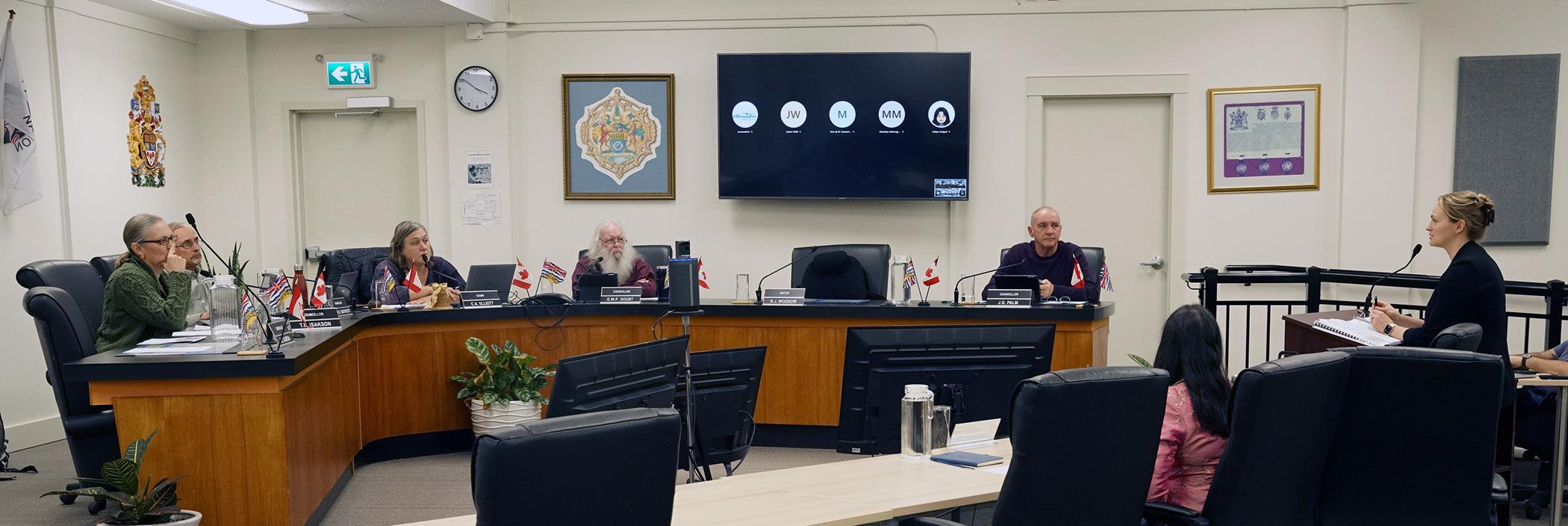
property class in 2026, it is also assumed that the total property tax stabilization reserve fund would be used in 2026 to help offset the resulting tax increases to other property classes.”
Denniston said the advantage of the $600,000 contribution is that it is the smoothest increase in property taxes for a single-family dwelling. She said under this scenario, for an average single-family dwelling, the increase in 2025 would be about $400, or 13.9 per cent, and in 2026, it would be $427, or 14.3 per cent. The disadvantage of this scenario, she said, is that the increases would be higher than the $300,000, or zero-dollar options, in 2025.
Denniston said there is the looming risk of the mill being removed from the major industry class in 2026, which would result in an estimated 19.5 per cent increase for an average single-family dwelling if there were no further contributions to the reserve.
“Staff are seeking direction from the committee on whether to increase the property tax revenue in draft two of the budget to the property tax stabilization reserve, or to not include additional savings in 2025,” said Denniston.
Councillor George Doubt said if council was to adopt the recommendation, it would increase city taxes this year by $600,000 and
increase taxation by about two and a half per cent.
“My difficulty is, we have asked for options about the expense side, and we don’t know what that outcome is going to be,” said Doubt. “It makes it really difficult for me to make a decision today, when I know that when staff comes back with the options on the expenditures, we will either have to do something that fits with this recommendation, or reconsider this recommendation. We are getting mixed up with what we are trying to do.”
Doubt said the proposal was to increase taxes this year so that next year, the city can use the taxation stabilization reserve to reduce the increase in taxes in 2026 to a similar rate as in 2025.
“The whole thing is about smoothing the tax increase rate,” said Doubt. “It’s not going to result in tax reductions or a lower rate of increase over the long term.”
After extensive discussion, the committee did not vote for the recommended option from staff to increase taxation by $600,000. Instead, they voted to include an option to increase the 2025 property tax levy by $600,000 to include a $600,000 transfer to the 2025 property tax stabilization reserve fund in relation to draft two of the city’s 2025 to 2029 financial plan bylaw.
reporter@prpeak.com
City of Powell River councillors have chosen not to extend the city’s budget consultation survey until the end of January.
At the January 14 special committee of the whole meeting, councillor Jim Palm attempted to get correspondence on the agenda from Westview Ratepayers Society, proposing an extension of the deadline for the survey from January 19 to January 31. In the correspondence, ratepay-
ers president Rick Craig stated that his society had only recently become aware of the survey and had just obtained a printed copy of it.
“At our executive committee meeting this morning [January 13], we decided that the survey should be promoted broadly and also sent to our membership,” stated Craig.
“The current deadline is January 19 and this does not allow enough time for our members to respond.
“Given the importance of community input to this year’s budget, we feel that the city would benefit from the broadest community feedback.”
Palm made a motion to get the item on the committee agenda, and it was seconded by councillor Rob Southcott, but councillor George Doubt said adding something to the meeting agenda at the end of the meeting is bad practice.
“Our procedure bylaw says that if we are going to add things to the agenda, they will be added at the beginning of the meeting, and you give notice to everyone that you are doing it,” said Doubt. “We’ve had plenty of time to do that. I saw the letter from the Westview ratepayers more than 24 hours ago. I
don’t think it’s an emergency.
“We are going down a really rocky road and I don’t know why we talk about procedure bylaws if we are never going to pay attention to them.”
Chief financial officer Mallory Denniston said the budgetary schedule was approved by council last May. She said if the deadline for the surveys was extended, the introduction of the second draft of the budget would have to be bumped from February 27 to a date in March.
Denniston said staff have three
days to compile all the online and in-person engagement, and three days to prepare the report and analyze it, so it can go through the proper review cycle.
“In order for draft two to come forward with comprehensive options that reflect all the new information that we have received between December and February, those dates are as tight as can be,” said Denniston. “If we extend the survey, that feedback wouldn’t be part of the engagement report.”
The motion to put the correspondence on the meeting’s agenda failed.
Tricia Collingham chosen from ‘plethora’
PAUL GALINSKI reporter@prpeak.com
Tricia Collingham is Powell River Brain Injury Society’s new executive director.
Having served as the executive director for the Stanley Park Ecology Society in Vancouver for three and a half years previously, Collingham is bringing her leadership capabilities to the brain injury society, which provides support, education and advocacy for persons living with an acquired brain injury, plus their families, friends and caregivers, through goalspecific, unique and innovative programming.
Collingham said her past leadership position, with the ecology society, was dedicated to education, conservation and research rooted in Stanley Park, which is visited by more than 18 million people per year. She noticed a posting online for the Powell River Brain Injury position and had been drawn to the community over the past few summers.
“I really loved the feel of the community,” said Collingham.
She said she also has an understanding of the effects of acquired brain injury, having had a car accident four years ago, suffering a concussion, post-concussion syndrome and other effects relating to the accident.
“Honestly, when I learned about what the Powell River Brain Injury Society does, and the impact that it has, I felt it would be a really good fit for me,” she added. “I’ve
been in senior leadership, including executive director level roles, for a long time, more than 20 years, and I’ve worked with a lot of vulnerable populations. With the situation that I went through, and also with my education and background, I thought this would be a great opportunity.”
Collingham said when she became aware of the brain injury society’s job posting, she took a close look at the organization’s website and researched online reviews.
“It really seemed like the organization’s impact is great, and that’s so important,” said Collingham. “If you can benefit somebody who is dealing with a traumatic situation, and benefit the community, you are doing good work.”
Collingham said she is so privileged to be training with Debbie Dee, former executive director and the brain injury society’s founder.
“I believe Debbie has more than 20 years in the organization, so I’m in good hands,” said Collingham.
“I’m very honoured.”
Dee has offered to stay on for up to three months to help Collingham become fully grounded in her new responsibilities.
“I’m really looking forward to learning so much from her,” said Collingham, who started her new position on January 13.
Collingham said it is too early to make many determinations about a future direction for the society, but added that she and Dee started talking about a strategic plan for the organization and how it can move forward.
“I’m really excited to be here and to be learning more about how I can benefit the organization,” she said.
The brain injury is a busy place, with a number of

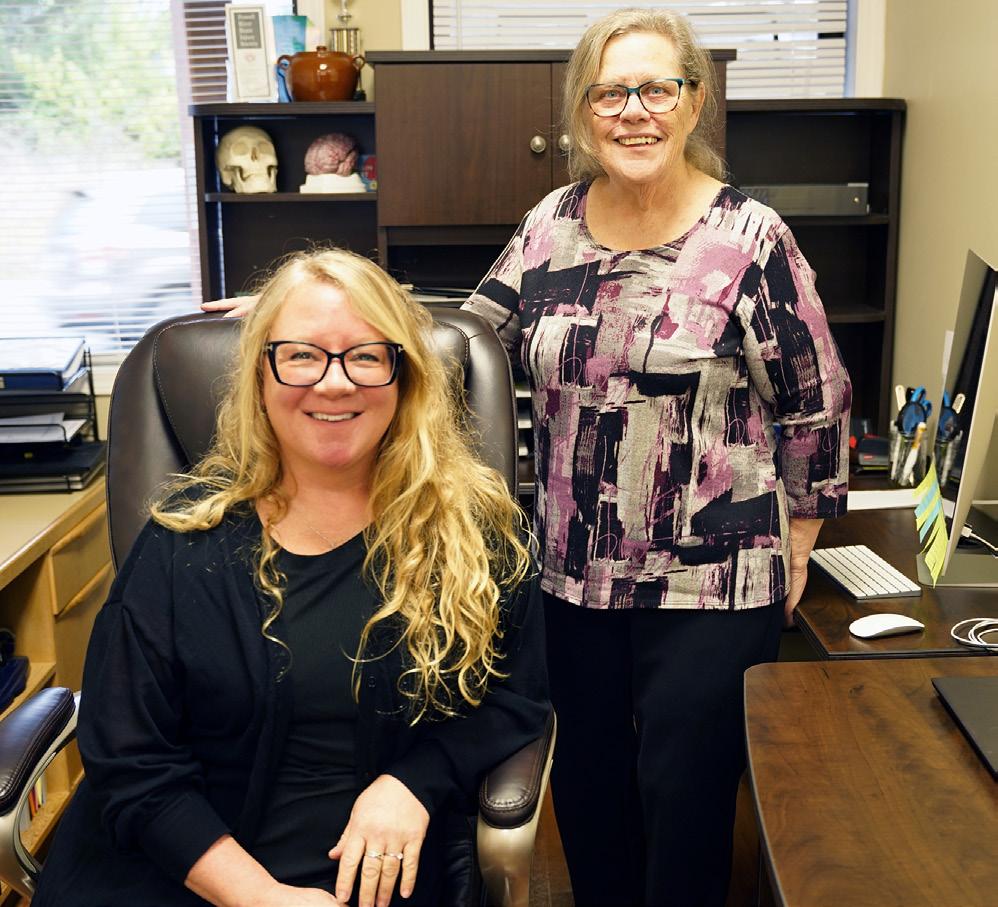
drop-in activities, she added.
“Something is running every business day of the week,” said Collingham. “I know in the summer, people are growing vegetables and gardening. We also have some outreach programs for people who use our services.”
Collingham said there is a steep learning curve ahead, and she is interested in continuing education, because she is a big believer in continuing education and professional development. She said she is interested in learning about what resources are available to assist her in most effectively managing the brain injury society.
Dee said she was looking forward to working with Collingham, who will bring some fresh perspectives to her responsibilities as executive director.
Brain injury society office manager Rachel Peterson, who manages most of the client services at the centre, said the society’s involvement can range from individualized services when people need help with paperwork, to government forms,
Canada Pension Plan, and items such as that. She said the society also connects people with appropriate agencies, such as the ministry of social development and poverty reduction.
“Sometimes people with brain injuries might have a little bit of difficulty, and advocacy helps, especially if they are having trouble with reading and writing following their injuries,” said Peterson. “They may find a situation overwhelming, or they may feel they can’t communicate the best, so we can come in and act almost like a mediator and help them with their rights.”
Peterson said she is looking forward to working with Collingham, who will come in with some of her own ideas.
“She’s going to bring a positive influence to the society and brings a lot of experience coming in from other organizations, which will be beneficial,” said Peterson.
Powell River Brain Injury Society president Roger Whittaker said Collingham was the most outstanding candidate among a plethora of great applicants.

If you’re only reading The Peak in print you’re missing out!
Join our email list for the top headlines right to your inbox Monday to Friday.


Literacy is crucial to how we access information, and being able to receive and interpret information leads to having control over many aspects of life. Not having control means being at the mercy of either other people or government agencies.
With many jobs needing more than a high school education, it is difficult for people without literacy skills to obtain employment, as technology continues to change the way people work and live.
Family Literacy Day is January 27. The annual initiative, started by ABC Life Literacy Canada in 1999, encourages families to engage in reading activities together. Setting aside time each day to read with children is crucial to their development, and may help the parents as well. Our education system results in many hours and dollars being spent on instilling and improving literacy skills in students. That expenditure
needs to be backed up by parents.
Children learn from their teachers, but the home environment provides even more opportunities to develop their reading habits. The best way to instill a love of reading in children is to read with them at all ages.
Being able to handle modern, complex problems can only be accomplished with basic literacy skills. Most people likely take the ability to read and write for granted, but many of those who haven’t mastered either skill spend a large part of their lives trying to disguise the fact that they struggle with one, or both.
Adults who admit they need help, tackle the challenge and take courses, or work with a tutor, deserve praise and acknowledgment. It takes courage to admit there is a problem and then do something about it.
To access Family Literacy Day learning materials and activities, go to familyliteracyday.ca.

In an age where TikTok faces bans over privacy concerns and/or a forced sale, tech giants such as Apple quietly update policies to access our personal data, and Meta/ Facebook removes fact-checking from its platforms, the importance of trusted local news has never been more critical. Journalism is the backbone of accountability in our society, ensuring that corporations, local governments and influential organizations are held responsible for their actions.
The role of a journalist is multifaceted and demanding. They ask the hard questions, spend hours conducting interviews,
We respectfully acknowledge that we live, work and play on the traditional and treaty lands of the Tla’amin people.
Published every Thursday by Pacific Coast Publications Limited Partnership.
REACH US
Phone 604.485.5313
publisher@prpeak.com • prpeak.com
Unit F, 4493 Marine Avenue, Powell River, BC V8A 2K3
Member of the Canadian Community Newspapers Association and the British Columbia Yukon Newspaper Association. CCNA Verified Circulation – paid.
and attend council meetings to report on matters most of us cannot personally witness. Their work ensures transparency in spaces that shape our daily lives. Yet, this vital work cannot be sustained in isolation; it requires the active involvement of the community.
At the Peak, we are a small but dedicated team committed to uncovering and sharing the stories that matter most to you. While we strive to be everywhere and see everything, the truth is, we can’t do it alone.
We rely on our community to help guide us. If there’s an issue or event you feel deserves attention, we urge you to reach out
SUBSCRIPTION RATES: 1 year: $68.25 incl. GST
MAILING RATES
Texada and local area:
$109.20 incl. GST
Within Canada: $191.10 incl. GST
PUBLICATIONS MAIL REG. 40069240
Office pickup available for addresses in a non-delivery area
COPYRIGHT NOTICE Full, complete and sole copyright in any advertising produced by Pacific Coast Publications Limited Partnership is vested in and belongs to Pacific Coast Publications Limited Partnership. No copyright material may be reproduced in any form without the prior written consent of Pacific Coast Publications Limited Partnership.


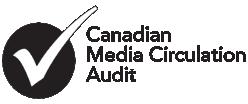



By Kelly Keil
with kindness and let us know. Together, we can ensure no story worth telling goes unnoticed.
As the Peak marks 30 years of serving this community, we reflect on how much has changed, and how much has stayed the same.
Like many small businesses, the COVID-19 pandemic presented unprecedented challenges, but it also reignited our passion and resilience. We remain committed to providing stories that respect the journalistic standards we hold dear.
Speculation and gossip may spark conversations, but they are not the foundation of responsible journalism. We are dedicated to
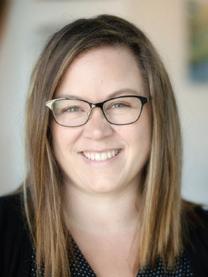


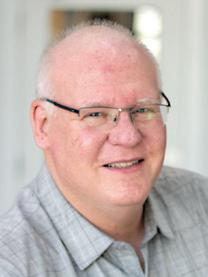
reporting the facts and avoiding the spread of misinformation. While it may take time to uncover the full truth, our priority is accuracy over haste.
Local journalism thrives when the community it serves values and supports it. By working together—sharing tips, engaging with stories and recognizing the efforts of journalists—we can build a stronger, more informed community for years to come.
Thank you for 30 incredible years. We look forward to continuing this journey with you.


Katharine Hayhoe is a Canadian scientist and professor at Texas Tech University, evangelical Christian and someone who manages to remain positive, even as the news about climate catastrophes grows ever worse. She keeps working to convince people that "The science is clear: every bit of warming matters, every action matters."
She knows people can change because when her pastor husband did not believe the climate crisis was serious, she succeeded in convincing him. Realizing many people feel discouraged, she reminds us that we have seen monumental change before, such as the abolition of slavery or when women and Indigenous people gained the right to vote. She urges politicians to stop arguing over who is to blame and strive to be the ones offering the best solutions.
I agree with her that it's important for us to continue to call for climate action. I believe how we face crises that might at first seem unrelated, like US president Donald Trump's 25 per cent tariff plan and threats of annexation, matter too.
CBC Radio interviewed David MacNaughton, former Canadian ambassador to the US, about how we should respond. He urged us not to try to negotiate, willy-nilly, on social media. Makes sense. He went on to suggest Canada speed up approvals for big projects, so we can have more to offer to the US.
The CBC did not inform us that MacNaughton stepped down as ambassador in order to become president of Palantir Technologies Canada, a big
By Jan Slakov
data analytics company which provides software platforms for commercial and government institutions in a variety of fields, notably for defence and intelligence agencies.
In another interview MacNaughton urged us to do things he says we ought to be doing anyways, such as strengthening border security, expanding our involvement in NORAD and increasing military spending, as a demonstration of good faith that might help prevent Trump from imposing tariffs. Does this approach, a form of appeasement, make sense?
Another CBC interview demonstrates another approach worth considering.
Piya Chattopadhyay interviewed housing expert Carolyn Whitzman. Asked about how a tariff war might affect our efforts to get affordable housing built, Whitzman acknowledged imports from the US would surely become more expensive. But, since we need to build on a large scale, with enough standardization to keep costs low, the tariff problem could provide an incentive for the government to nurture the Canadian businesses that are ready to build, but which need certainty in order to move forward in a big way.
Yes! Let's use the threat of tariffs to do things we ought to have done long ago, including decreasing spending on militarization and megaprojects. And let's focus more on producing and selling what we need (not what we may
feel entitled to) locally. Then we could protect the Salish Sea from the proposed RBT2 shipping terminal that is slated to bring more than two million additional shipping containers into BC through a facility that would be larger than 300 football fields, in the mouth of the Fraser.
If we're serious about reducing GHG emissions, we need to restructure our economy, indeed our whole way of life. Ultimately, our security depends more on learning to foster what is best in humanity, not on whether we can outgun some other nation. Clearly, it depends on preventing ecological and social collapse.
If we want to change direction, lots of work has already been done that could get us headed in a healthier direction. For example, Canadian Mike Nickerson has many resources available on his sustainwellbeing.net site. We need to free ourselves from a colonizing worldview. The worldviewliteracy.org site is a great place to start on that effort.
We need to hear more from the many people who recognize the dangers of our dominant worldview and of fascistic tendencies in our societies, and who are doing amazing things to show how another world is truly possible and much healthier and happier for everyone.
For people wanting to get news that can help nurture this worldview, my top recommendation is Nonviolence News, curated by the amazing author, dancer and farmer Rivera Sun.
Jan Slakov is a member of qathet Climate Alliance.
Where are environmental savings?
Following up on Rose Shaw’s comments about the removal of recycling options near the old Inn at Westview site
[“Letter: Reopen recycling depot in Westview,” December 19], I must fully agree with her point of view.
For one, my battery scooter will not survive the hill and
back to Joyce Avenue, plus getting home.
Two, where is the environmental savings using uphill gas to the new [qathet Regional District] recycling/resourcerecovery centre and then again uphill to Joyce? Or am I missing something? Can you recharge your car up there?
Will someone improve the situation and return the world to normal?
Bill Ireland
Joyce Avenue
The Peak publishes letters it receives regarding the stories on its pages when space allows, as long as letters are signed, dated, and include the writer’s address and a daytime telephone number for verification. We do not publish anonymous letters.
The exceptions are those letters which may be libellous, in bad taste, or describe an incident involving other people which, to be fair, should allow both sides to be aired in a news story.
Letters should not exceed 350 words and Viewpoints must be approximately 500 words. The Peak reserves the right to edit based on taste, legality, clarity and length.
Opinions expressed in Letters to the Editor and Viewpoints are those of the writers and do not necessarily reflect the opinions of the Peak or its employees.
general,” said McDonough.
“We’ve struggled a little bit here and there, but we’ve got five games to go and a couple of these are at home.
PAUL GALINSKI reporter@prpeak.com
In its return to action, Powell River Villa soccer club is hoping to repeat the form they displayed to open the season, to climb the Vancouver Island Soccer League (VISL) standings.
Team manager Chris McDonough said the season, so far, has featured ups and downs.
“We started off really well and then just ran into some injury trouble, and just missing some guys in
“We feel like our team has gotten better over the year. We’ve got a young team that’s improving day by day. So, I believe, it’s looking good going into our next five games. We’ve got a good stretch ahead and the break over the holidays helps us as well. The guys have come back recharged and ready to go.”
McDonough said Villa had a tough stretch in mid-November, with three consecutive games on the road.
“We played well but we just could quite find a way to win games and finish things off at the end,” said McDonough. “There are things we are working on
and correcting, hopefully, going into the new year.
“We’ve had a lot of close games, losing by a goal here or there, or even ties, which we could have won. We are looking for consistency and bringing 90-minute full efforts. We want to play mistake-free soccer for the remainder of the schedule. A lot of our games have come down to one mistake.”
McDonough said Villa’s players are enthusiastic, with really good numbers turning out for training this year.
“We have a big squad and everyone’s motivated,” said McDonough. “We just have to put together that final piece on the field.”
With the good turnout, McDonough said there is healthy competition on the team, and everyone’s pushing each other to improve.

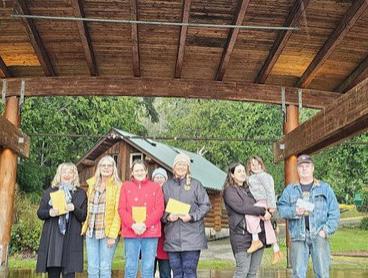
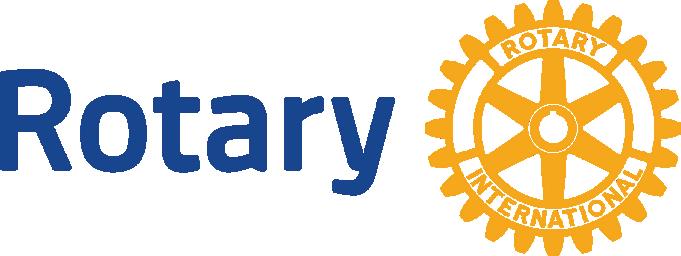
“So, I think the vibes are good,” said McDonough. “We have some games in hand on the next team above us, so we’re right into avoiding relegation. Every point is important to us.”
In the VISL Division 1 standings, Nanaimo United are seven points ahead of Villa, with Nanaimo in ninth and Villa in 10th spot.
Niko Cristante scored the lone Villa goal in a 5-1 home loss to Cowichan on January 18. McDonough is hoping the great fan support continues as the season continues.
In addition to league play, the draw for the Jackson Cup was made on January 14. Villa will face Vic West’s VISL Division 2 squad on February 1 in Victoria.
“It’s always exciting playing in the Jackson Cup; the

top two divisions in the VISL compete, so we’ll be one of 20 teams,” said McDonough. “Selection is totally random, so we’ll see how we do.
McDonough expects the season to go until late March, or even later if Villa advances in the Jackson Cup. He said the schedule
could also draw out a little longer if there are game cancellations due to weather.
“We should get at least six games with the Jackson Cup, so it will be good to get the fans out to support us until the end of the season,” said McDonough. “We need the push.”
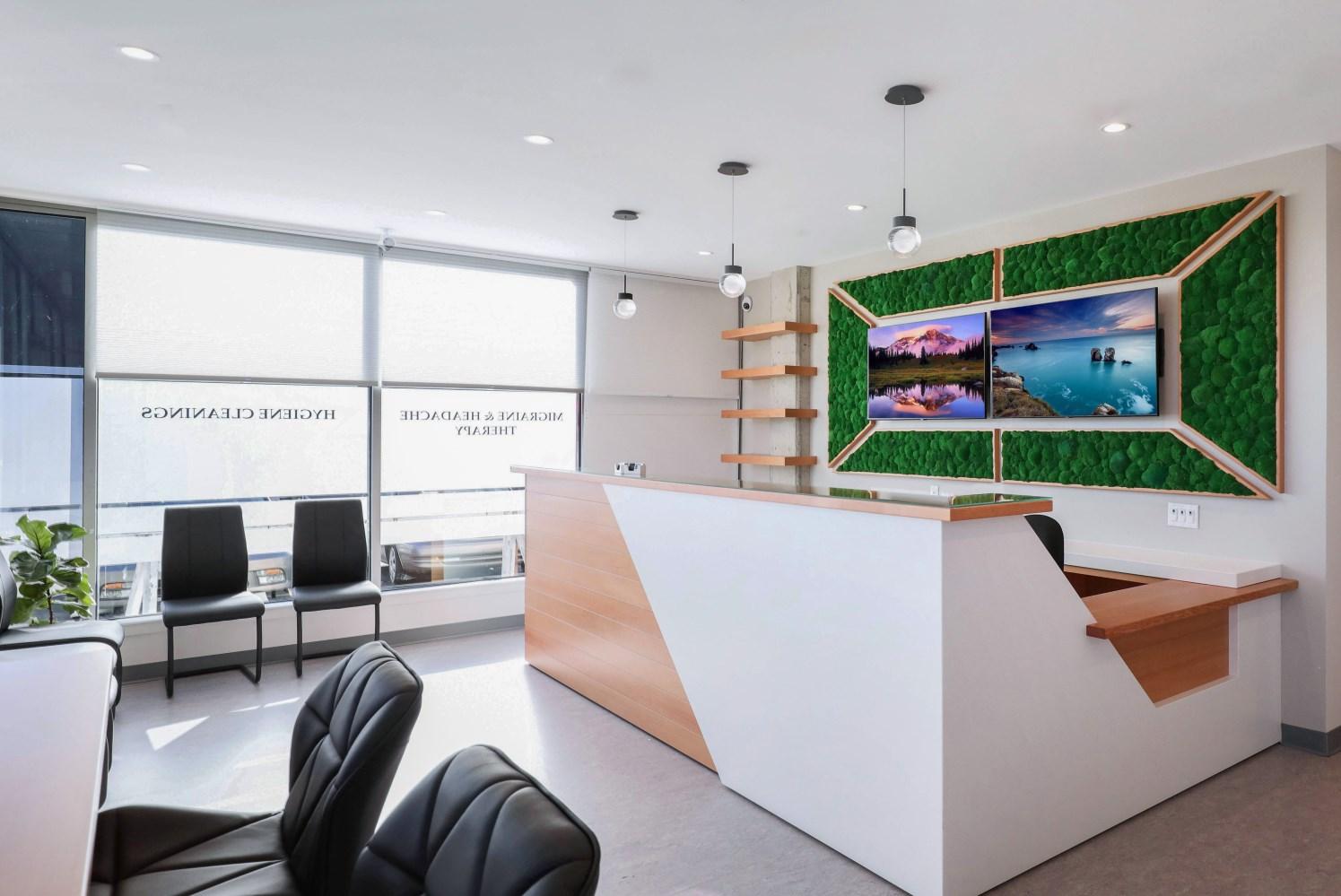

PAUL GALINSKI reporter@prpeak.com
Duncan McDonald, who grew up playing soccer in Powell River, is honoured and humbled to be named Canada Soccer’s para player of the year.
Representing Canada last year at the International Federation of Cerebral Palsy Football (IFCPF) World Cup in Spain, McDonald won praise from his coach Drew Ferguson, also of Powell River, for his performance at the tournament.
“He put in a very, very solid performance every single game,” said Ferguson.
McDonald was humble about being named para soccer player of the year, saying that soccer is a team sport, and he couldn’t have
achieved what he has without everyone at his side.
“It’s a great honour to be recognized, but I know I have my teammates to thank,” said McDonald.
As a further honour, in the final game of the world tournament, McDonald was handed the captain’s armband when regular captain Samuel Charron, also a winner of Canada Soccer’s para player of the year, was injured.
“He’s our captain through and through,” said McDonald. “He’s an absolutely remarkable player. He went out and we’re wishing the best for him. So, they gave me the captain’s armband and I did the best I could, having learned from Samuel.”
McDonald, 24, usually plays midfield, but was moved back because the Canadian team had some younger players that fit into his regular position. McDonald was in the backfield to help control the game and limit shots on goal.
“I played the first game against Brazil at centre mid-
field, and then for the next four games, I played at centre back, which was a transition,” said McDonald. “I don’t know what plans Drew has for me going forward, but I definitely enjoyed the back line and all the battles that came with it. Ireland, in particular, definitely threw some massive challenges my way, but I really enjoyed playing there. So, whether it’s midfield or centre back, it’s an honour, either way.”
In the first game of the 2024 world tournament, Canada lost to Brazil 4-0. Canada beat Japan 2-0 later in the tournament, which McDonald said the team saw as a must-win.
“That was fabulous,” said McDonald. “We had a bunch of young teammates who made their debut for us and they looked exceptional. So, there’s a lot of cause to be really optimistic in the years ahead. It was a really great learning experience for all of us, so we can be very happy with how the game went.”
Canada also had games against England, Ireland and Venezuela, which
were recorded as losses. Canada finished 12th in the tournament.
McDonald said playing for the national team in world competition is a bit nervewracking, but he is pleased with how the team has gelled over the past few years.
“When you’re really good friends off the field, then you fight like hell for each other on it,” said McDonald. “Our team chemistry is really good right now. I love playing with them. It’s an honour every time I step on the field with them.”
McDonald is a national team veteran, having first stepped on the field for Canada when he was 15, playing in Denmark in 2016, and having represented Canada 37 times. He grew up going through the Powell River Youth Soccer system, beginning play when he was three. Growing up in Powell River, he met Ferguson, and was recruited for the national team.
“Drew knew me from quite a young age,” said McDonald. “He knew I was eligible to play para soccer,
hockey team wins shootout and overtime games in medal round
Powell River Minor Hockey hosted a U15 recreation tournament from January 17 to 19, which resulted in the home team topping the podium.
Powell River U15C Kings battled hard in the round robin, finishing with two wins (8-3 over Cowichan and 4-3 over New Westminster) on January 17 and a 6-3 loss to Ridge Meadows the next day.
The semifinal game against Vancouver on January 19 went to a shootout, won 4-3 by the home
team, securing its spot in the final. Andon Palmquist scored twice for Powell River. Pearson Coburn and Matt Murphy had one goal each.
The final later on Sunday was a back and forth contest that ended in a 5-5 regulation tie. U15C Kings pulled ahead 3-0 through two periods with goals from Matthew Marchand (two) and Colby Hobbs. Semiahmoo Ravens fought back in the third period to make it 3-2 before the Kings went ahead 4-2 courtesy of a goal from Gabriel Cudmore. The visitors responded with a pair of goals to tie the score at 4-4, before Marchand restored the lead with his hat-trick goal midway through the period.
Ravens bounced back again, scoring on a power play late in the third

RECEIVES RECOGNITION: Powell River soccer product Duncan McDonald was named as Canada’s 2024 para player of the year for his excellence and leadership with the national para team. McDonald had a great performance at the International Federation of Cerebral Palsy Football World Cup in Spain last year. CANADA SOCCER PHOTO
and thankfully, he took me under his wing and got me going with the team. I have Drew to thank for that and I’m super grateful.
“I love playing under him. He’s a great coach. I’ve learned a lot from him and I know I can learn a lot more in the years ahead.”
When not playing for the national team, McDonald, this past season, played in the Burnaby men’s soccer league. In the coming year, he is moving to Australia to pursue a master’s degree in computer science, so he will be looking to get set up with a team there to keep him in
game shape.
“In the meantime, I’ve just been training and getting ready for Australia,” said McDonald. “I’m excited to see how it turns out.”
McDonald said that even though he will be distant from Canada, he plans to continue playing for the national team. He said he will come back to train and prepare for the next tournament, which will be in Uruguay in September.
“I’ll be eligible to try and make the team for the tournament ahead,” said McDonald, “so I have no qualms about that.”

period to tie the game and force overtime, but it only took a short time for the home team to score the winner. Marchand buried his fourth goal of the game after pick-
ing up a rebound from a Coburn shot to capture the gold medal in a nail-biting finish.
Ridge Meadows edged Vancouver 2-1 in the bronze medal game.
Eight teams started tournament play on January 17. Organizers expressed gratitude for all the hometown support on and off the ice.

Rotarians live by the motto Service Above Self
The Rotary Club of Powell River received its charter in 1955 and will mark its 70th anniversary on June 14. It is one of more than 35,000 clubs and 1.9 million members around the world. It also sponsors Brooks Interact Club, Rotary in high schools, which celebrated its 30th anniversary in 2024.
As part of Rotary Awareness Month, one of the club’s past presidents, Virendra Varma, aged 98, talked about his Rotary experience.
Virendra kept seeing Rotary signs at different places in his life.
He was born in Dar es Salaam, Tanzania, to parents from India and journeyed to England for his dental training.
“There was an International House in Newcastle where we students were welcomed with so much warmth,” said Virendra, who recalls seeing a Rotary sign there.
Once when he was travelling on the underground in London, he saw a man sitting across from him wearing a Rotary pin. They struck up a conversation and Virendra was invited to his home for a visit.
After completing his training, Virendra began his dental practice back in Dar es Salaam.
He joined the New Africa Rotary Club where he was among four or five Asian members and one minor African chief. The rest were European. His son Ash remembers going to lunch meetings twice when he was about five or six.
Virendra’s practice included dental work for the American, Egyptian and German ambassadors as well as the Canadian high commissioner.
“Actually, most of the ambassadors were my patients,” said Virendra.
When it became politically uncomfortable to remain in the country, he began looking for a new home. He had an English solicitor patient who advised him not to go to Canada, saying he had a grapefruit in his car that froze in the cold weather. However, there was a Canadian family from Edmonton which did recommend immigrating there. So Virendra sent his family to stay with relatives in India and made his way to Canada where he, like all internationally trained dentists, had to write the British Columbia board exams of the day.
He visited the Vancouver Rotary Club, where he sat beside Bruce Sinclair, founder of Sinclair Dental, and they began a relationship that continued until he died last year. Bruce’s wife knew about Powell River and suggested that as a possible location for a new practice.
“I grew up by the Indian Ocean with Mount Kilimanjaro behind me, so I was happy to be beside the ocean again.”
Virendra arrived in Powell River and stayed at Cooks Motel on Alberni Street so he could walk to the dental clinic where he started with 15 patients. Today both his son and grandson Milan provide dental services to patients.
Prior to his family arriving, Virendra decided he needed to purchase a car, so he went into the GM dealership owned by Earl Jacobsen, known as Brick. There on the wall was a Rotary sign indicating he was a member.
“He ended up providing me with a car and not charging me.”
Virendra joined what was called at that time the Westview Rotary Club in 1967 and served as president for 1972/1973. Ash, who attended many club functions with his father, joined Rotary in 1986 and continues to be a member of the club. He served as president in 1990/1991.
Bud Vogl was president when Virendra joined, and he fondly remembers the many steak feeds club members enjoyed. Virendra recalls always having a project on the go with many work parties.
Rotary started the popular summer event Sea Fair which ran for 50 years. Rotarians raffled off a boatload of groceries, held a beer gardens, served an early morning pancake breakfast and conducted a paper-packing contest where entrants carried a roll of newsprint along a route on Willingdon Avenue near the ferry terminal.
Another popular part of Sea Fair was the visit of naval ships and the program “Bring A Sailor Home for Dinner.”
They also created a parade float with the characters of Popeye and friends Olive Oyl, Wimpy and Brutus, that appeared locally and as far away as the Rose Bowl Parade in California. Asked what Rotary had done for him, Virendra responded, “nothing but help and I did that in return.”
Virendra’s experience is that “Rotary brings strangers together and brings people closer in understanding.”
January is Rotary Awareness Month
January is Rotary Awareness Month
Follow us on Facebook @rotaryclubofpowellriver to see our events and activities, or go to www.prrotaryclub.org
Follow us on Facebook @rotaryclubofpowellriver to see our events and activities, or go to www.prrotaryclub.org

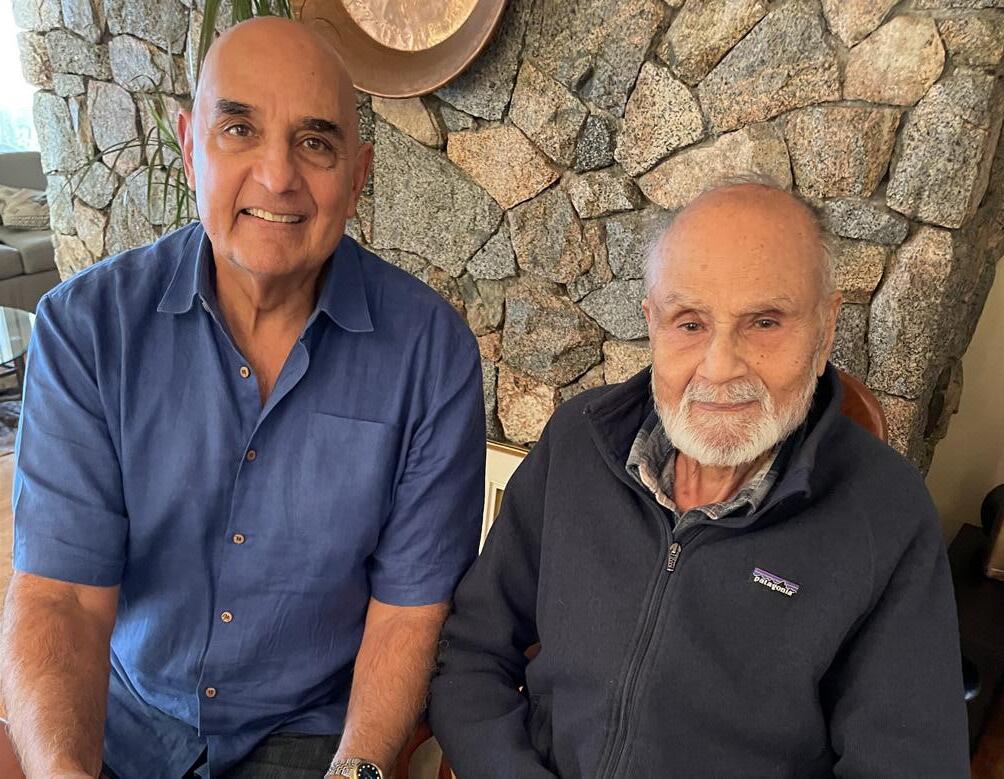








Sharilyn McCartie captures moments in time with watercolour, pastel and pen
TANYA HILL thill@prpeak.com
Artist Sharilyn McCartie has been visiting Savary Island in the summer since she was five years old. Her mom and dad bought a little piece of paradise on the island in the 1960s, and her dad, Jim Sclaters, also a prolific artist, owns Savary Island Art Studio and Gallery at 1328 Tennyson Road. "I started painting Savary scenes about 20 years ago; I can’t believe it," said
McCartie. "I did my first set of 16 by 20 large pastels when I was attending the Kwantlen College [now called Kwantlen Polytechnic University] fine arts program for my final project."
McCartie said her first pastel creation was of the Savary wharf, which was sold to a family living on the island. She is inspired to capture “moments in time” in her artwork, and loves wandering in tidal pools, beachcombing, hiking tree-lined trails and observing art forms in nature and people. Her newest work in progress is Savary, as seen from a topical map point of view.
"I had a vision to portray Savary in a new way that I haven’t tried before," said McCartie. "The shape of the island is unique, often called a serpent."
She said she envisioned filling the shape with the flora and fauna native to the island.
"[I've filled it] with the plants, sea life, the rarely seen sun star, tide pool finds such as the sand dollars and mussels, and unique trees like the arbutus," said McCartie. "Savary is a treasure chest for all who walk the beaches and tree-lined paths and I wanted to portray that discovery of unique west coast beach, sea and forest treasures."
For this newest work, she chose pen, ink and watercolour. Most of her other work has been in chalk pastel, oil paints and a little watercolour.
McCartie has been making and selling cards every summer at the weekly market and at the art studio and gallery.
"I bring my art supplies
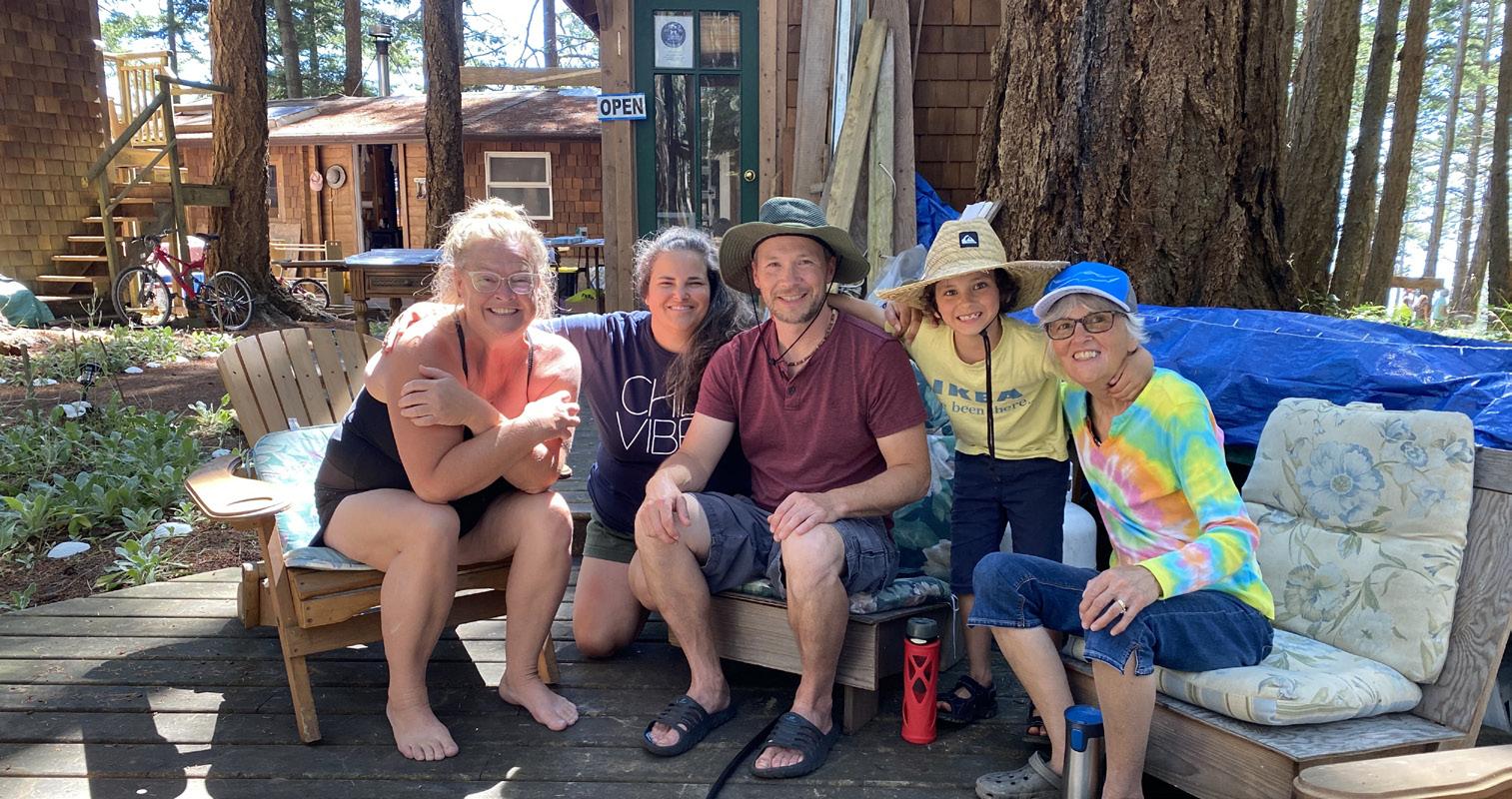
in hope of doing some art, however, now my husband and I bring our three sons who keep us exploring," laughed McCartie. "I take many many photos for reference and my fun project when I get home is to choose a new scene to paint and draw all year."
Her family lives in the Lower Mainland, but will be heading up to the northern Sunshine Coast once again this summer.
"We welcome the public to come by my dad's gallery, right near the sugar shack, where you can get candy, ice cream and homemade ice-cream sandwiches," said McCartie. "I have also been doing photography on Savary and have an Instagram called #bigmeadowphotography.” McCartie's work can also be found on Instagram @artbysharilyn and Facebook @artbysharilyn.
Comedian invites folks to sit back and enjoy an evening of laughter
TANYA HILL
thill@prpeak.com
Comedy, laughter and fun might be the antidote needed to make it through the dark days of winter on BC's west coast.
Veteran stand-up comedian John Cullen will bring comic-relief to folks in qathet on the upper-level of the Carlson Community Club on Saturday, February 1. The night of entertainment, music, dancing and prizes is being hosted by PR Parents for Dance, who are fundraising for Laszlo Tamasik Dance Academy dancers to help with competition fees and travel expenses.
Although the qathet region at-
tracts visiting artists, comedy is a rare commodity here, so when it does arrive, folks may not know what to expect.
"The main thing with my shows is, I always want to have everybody in the crowd to just have a good time," said Cullen. "I'm not looking to provoke anybody and I'm not political."
Cullen is known for his observational storytelling and light-hearted humour. Unlike some comedians who spend a good chunk of a day trying to write jokes, Cullen doesn't work that way.
"For me, a lot of it [creating comedy] happens at the moment," said Cullen. "Most of my comedy comes from stuff that I actually do and see in my regular life."
Cullen used to be a school teacher in the Lower Mainland and some of his jokes are about, what he describes, a weird and fun job.
"I'm having as good of a time
as the audience is," said Cullen. "I think comedy is fun and should be fun, and I love to do it."
One of Cullen's comedic influences is his uncle, Chris Quigley, who has been doing comedy since the 1990s.
"My current favourite comedians are Nate Bargatze and Mike Birbiglia," said Cullen. "They are both observational storytelling type guys and love what they're doing."
Up-and-coming comedian Nash Park will be the opening act for the night. He has performed in Powell River before with his group called OK, Dope, and performs regularly at Hecklers in Victoria.
"If we can all just get together, have a laugh, that's a great feeling," said Cullen. "I've had lots of people over the years come up to me after the show and say they had something going on in their life and just needed to get out and have a laugh
and a good time."
Cullen has performed across Canada with Just for Laughs and in Powell River with Yuk Yuk's in the past.
"That's why I try to make my jokes as broad and accessible as possible," said Cullen. "I want everybody to leave saying, ‘You know what? That was really good, and I needed that,”
PR Parents for Dance representative Jae Rae said beverages and snacks will be available throughout the evening.
"A bar will be provided with alcoholic and non-alcoholic beverages, as well as pizza and snacks for purchase," said Rae. "We will have a silent auction and raffles set up with a variety of prizes donated from the many generous local businesses in our community."
The dancers will be competing in April in Mission, at the Shine Competition, and in May, in Burnaby, at the Evolve
"Our company dancers compete against more than a dozen dance studios from around the province," said Rae. "We currently have over 60 competitive dancers who perform in several genres that include, ballet, lyrical, contemporary, musical theatre and hip hop."
The event is open to everyone in the community who is 19 years of age and older. Doors will open at 7 pm and comedy starts at 8 pm, followed by live music from a local band called Shattered.
Tickets and tables of eight can be purchased at the Peak (4493F Marine Avenue) or by reaching out to any company Laszlo Dance Tamasik Academy dancer.
"PR Parents for Dance are looking forward to seeing a great group of people wanting a fun night out for laughs and live music, as well as supporting our local dancers," said Rae.

qathet-based fitness and nutrition coach Karina Inkster had some answers to our questions about this topic.
Peak: With a new year in full swing, what are some small but effective strategies people can take to change or improve physical/mental wellness?
TANYA HILL thill@prpeak.com
Starting off a new year is usually a time of renewal and change. Often, folks decide to make new year resolutions to change something, such as wanting to get more physically fit and/or eating healthier. However, many studies have found that by mid to late January/ early February, gym membership sales drop and many well-intentioned changes are abandoned.
Last fall, the Peak reached out to a few mental health professionals in the qathet region about best ways to improve one's mental fitness, especially during the darker months. But what about physical fitness in 2025? Do resolutions work? Or is there a better way to make longterm changes?

Inkster said that among the factors we can control, four have the greatest influence on our physical health.
"First and most important is nutrition," added Inkster. "You could take 30 minutes twice a week to prepare some nutrient-dense snacks, like veggies and hummus, homemade trail mix or energy balls."
A little plant-based secret that most people don't know about is that, "fava bean tofu is higher in protein than almost all animal products, and it’s available locally.”
Next in importance is strength training.
"For day-to-day functioning, bone density, body composition, injury prevention, boosting metabolism and much more, strength training is key."
Inkster is a big fan of using resistance bands, because they can be used anywhere, including outside, in the gym or at home.
"If you’re new to [strength training] start with three 20-minute [resistant band] sessions per week," said Inkster. "We then need to make sure we have our recovery bases covered, which includes getting enough sleep and managing stress."
Trying a yoga class, testing out a meditation app or creating a more calming bedtime routine would be some examples of managing stress, according to Inkster.
"Last but not least, we need to be engaging in regular cardiovascular exercise to boost heart health, endurance and energy levels," said Inkster. "Make it fun. My favourites are jumping rope, swimming and rucking [hiking with a weighted pack]. "
Inkster said improving health doesn’t need to be complicated.
"Focusing on nutrition basics like eating a variety of fruits and vegetables, strength training regularly, finding a form of cardio you enjoy and rest and recover as best

you can.”
Peak: Many people make resolutions but find it hard to keep up with changes they want to make. Is there a better way to go about changing habits or a lifestyle for the better?
"Goal or resolution-setting is not necessarily the most effective way to achieve something big," said Inkster. "Resolutions are usually based on outcomes, like losing 30 pounds, or writing a book, which can seem too daunting to even try."
When people try to work toward a lofty goal they often start out working so hard and intensely that they give up within a few weeks, she added.
"Creating small habits is a more effective approach," said Inkster. "Setting smaller goals, such as writing a page a day or walking 15-minutes per day sounds, and is, much more manageable."
The problem is, committing to an abstract goal doesn't necessarily work for long-term changes, and is often overwhelming.
Peak: What strategies do you use to maintain motivation to
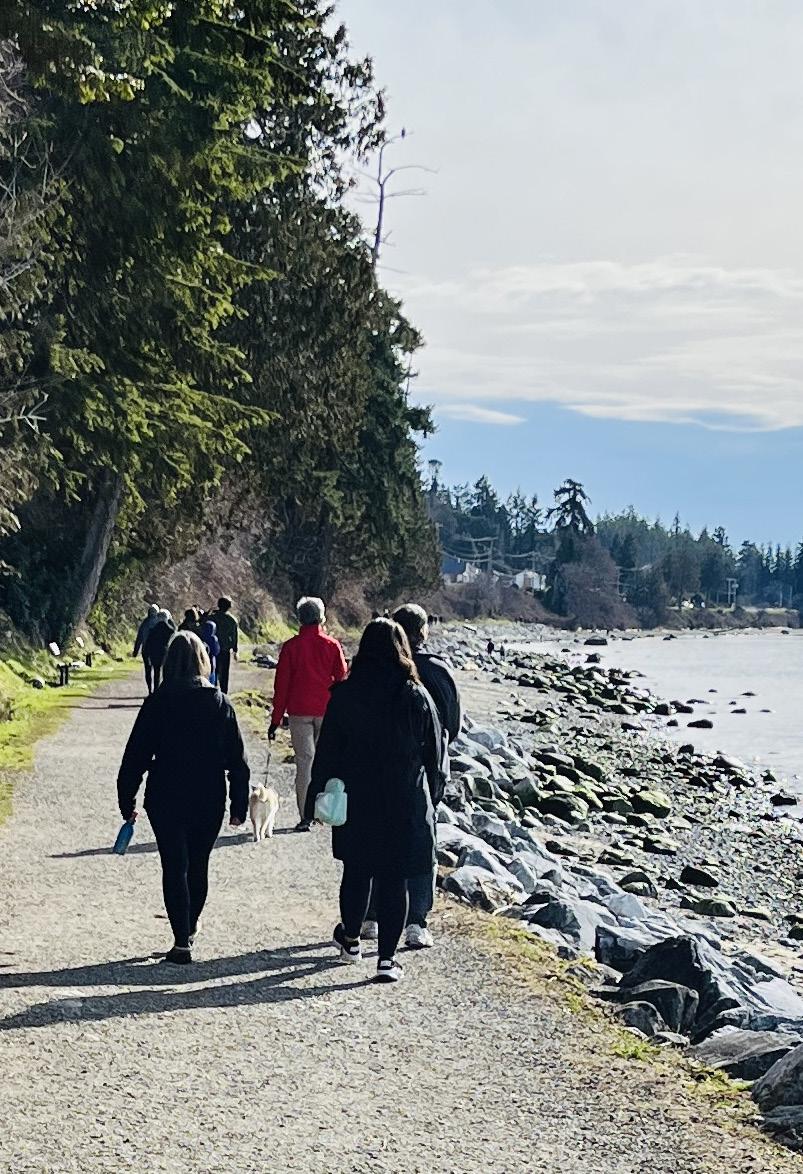
HEALTHY HABITS: Getting outside and exercising can increase vitamin D uptake and have a significant impact on physical and mental well-being. The photo above was taken on the
eat well and exercise?
"To stay consistent with exercise and nutrition goals, do not rely on motivation. It’s fickle; some days we have it, some days we don’t."
Instead, Inkster suggested building habits, modifying the surrounding environment and making use of accountability.
"I have four regular strength training buddies, hold all my Zoom meetings while cycling on my bike desk, started a swim club to stay consistent with my own swim training, and do meal prep so I’m a step ahead of myself."
Rick Berghauser and his associates, Arnold Mulder and Laura Chan, master degree clinical counsellors, are available to see families and individuals both online and in person
In
BY SHAWN PETERS
In today's fast-paced world, chronic pain has become a common experience for many. Whether it's due to an injury, medical condition or simply the stresses of everyday life, finding relief can often feel like an uphill battle. This is especially true in cold, damp conditions where pain gets worse. While conventional medicine offers effective treatments, an increasing number of people are turning to natural approaches for pain management.
Herbs for pain relief
Turmeric: This yellow spice contains curcuminoids, anti-inflammatory compounds that can help alleviate pain associated with conditions like arthritis and muscle
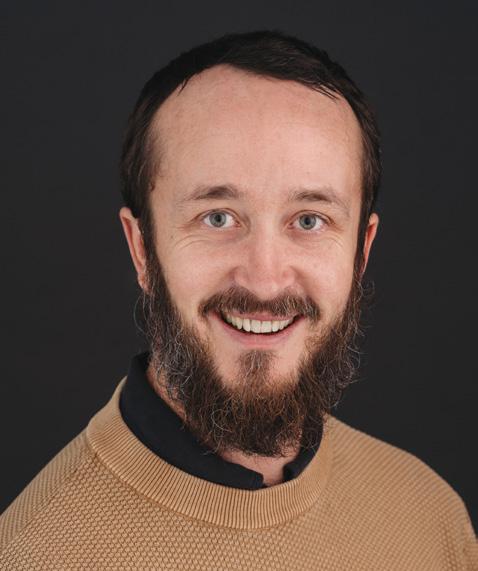
Boswellia: Also known as Indian frankincense, Boswellia extract has demonstrated anti-inflammatory properties, particularly in joint pain and many inflammatory syndromes. Prudent use of herbal medicines involves ensuring they are the right ones for you, as they can interact with medications or with other herbs. Use herbs wisely by consulting reputable
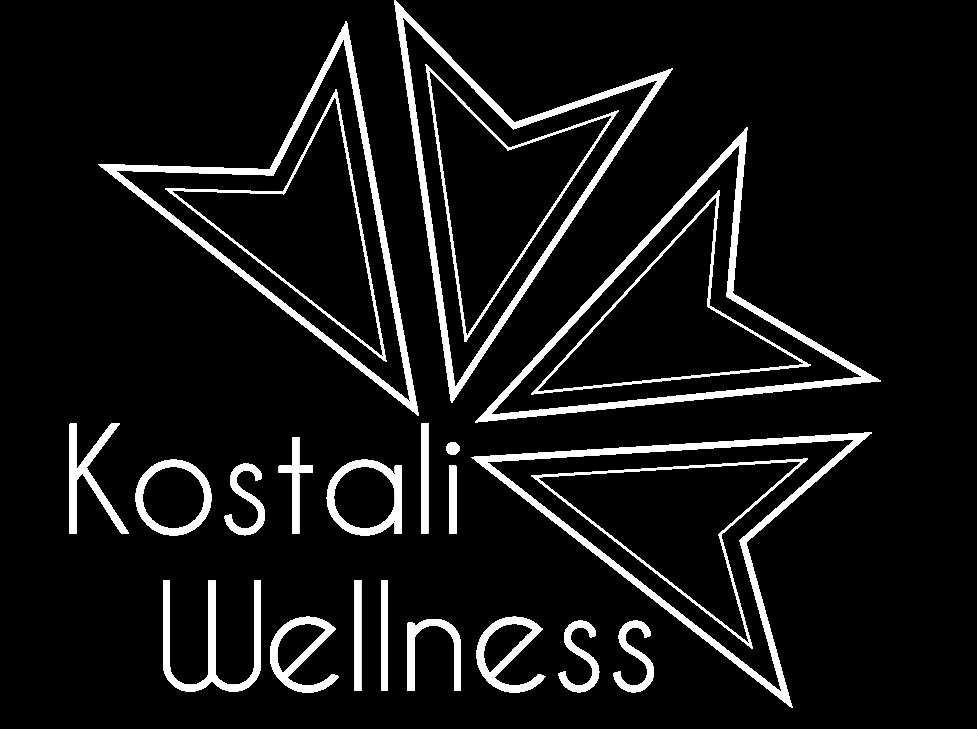
resources, following instructions on labels and seeking professional advice.
Vitamin D: Associations have been found between vitamin D deficiency and chronic pain conditions such as fibromyalgia and low back pain. Living in Canada with multiple months of gray skies means many of us are deficient in vitamin D.
Magnesium: This mineral plays a crucial role in muscle relaxation and nerve function. Supplementing with magnesium may help alleviate muscle cramps and tension headaches.
Fish Oil: Rich in omega-3 fatty acids, fish and fish oil supplements have been shown to reduce inflammation and may improve rheu-

matoid arthritis.
Bloodwork can help your naturopathic doctor assess your need for any of these nutrients.
Neural therapy involves the injection of local anesthetics, such as procaine, into specific areas of the body. The injection can lead to immediate pain relief and, over time, help to break the cycle of chronic pain. Additionally, the improved blood flow and reduction of inflammation in the treated area promote tissue repair and regeneration.
Neural therapy offers a promising approach to relieve joint and muscle pain and improve mobility, in chronic pain conditions such as arthritis, fibromyalgia, back pain and sciatica.

Boswellia extract has demonstrated anti-inflammatory properties, particularly in joint pain and many inflammatory syndromes.
While each of these natural approaches can be effective on its own, they often yield even better results when combined. Incorporating a variety of herbs, nutrients and injections into your pain management regimen can help address pain from multiple angles, providing comprehensive relief and
improving overall quality of life. The strategy that is right for you will depend on your health concern.
A holistic approach to managing chronic pain focuses on addressing the root cause of discomfort rather than simply masking pain.
Dr. Shawn Peters, ND, is a naturopathic doctor practicing in Powell River and Courtenay.




BY ROBERT SKENDER
These are harrowing times. Donald Trump is moving back to Washington, DC, where his supporters attacked the Capitol Building following his defeat in 2021. Further to that he has also shoved his way back in our societal collective consciousness.
This time the US president is threatening to take over a large part of the Western Hemisphere, including Canada, by using economic force.
The destruction by fire in Los Angeles is frightening and heartbreaking. The conflict in the Gaza Strip is saddening, and the Russian aggression and subsequent war crimes in Ukraine is a nightmare that seemingly won’t end.
The human against human violence is found in hundreds of more geographic locations but, tragically, doesn’t receive press coverage.
Those of us with fragile mental health situations or any ongoing issues or illnesses can be pushed further into unhealthy states by a world which seems to be aflame with negativity and a widening division among people. One coping mechanism for people just holding on with their mental health scenarios is temporary escapism.
A short definition of escapism is “the act of temporarily avoiding negative feeling of situations by distracting oneself with entertainment or fantasy.” Escapism can be a healthy tool to detach from the stresses of life and regain a healthier perceptive.
Nonetheless, like everything in mental health and life generally, finding a healthy balance between
avoidance and engagement must be attained for good mental healthiness.
Escapism has been found to have positive effects, such as relaxation and mood repair, and negative consequences, such as excessive media use.
Once again, the secret to making escapism effective is to find the right balance. Our biological bodies search for a state of homeostasis where changes happen in our environment and our physiological bodies keep balanced
following 729 people for 12 years linked suppressed emotions to a 35 per cent in crease in a shorter life span and a 70 per cent increase of risk of death by cancer. Many more studies would be needed for a solid scientific understanding of the link. Still, it is self-evident that too much detachment in life during tough times can be a negative to mental and physical health.
It is a challenge keeping balance, hence having as many tools as possible in our mental health tool belt is beneficial.
and steady by responding in real time accordingly.
Using escapism as an effective tool, we try to keep our thoughts and emotions in a psychological homeostasis. Life is always changing. It is a challenge keeping balance, hence having as many tools as possible in our mental health tool belt is beneficial.
When escapism is used to suppress challenging emotions instead of processing them, there is a serious cause for concern. A study


These days, we don’t have to go farther than monitor ing Netflix usage to gauge if the es capism needle in is the red. Perhaps, for younger genera tions, time spent playing video games might be a sound marker to determine the balance of real life and deep fantasy. Today’s technology is immersive and interfaces with life seamlessly to the point that there can be a dangerously line as to where fantasy stops and human life starts.
All we can do for the positivity of mental health is to strive to get the balance right.
Robert Skender is a qathet region freelance writer and health commentator.


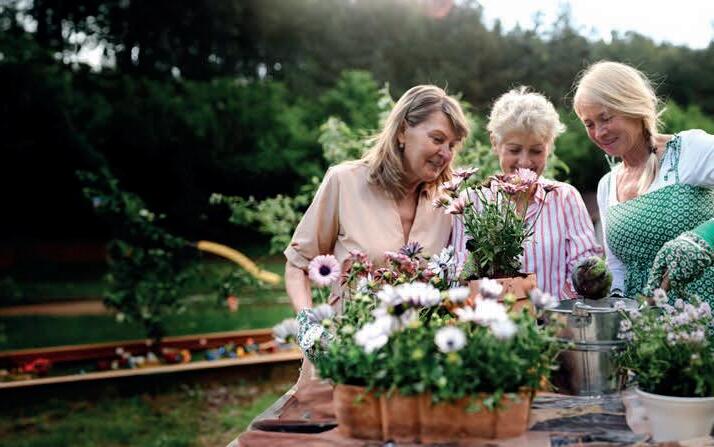






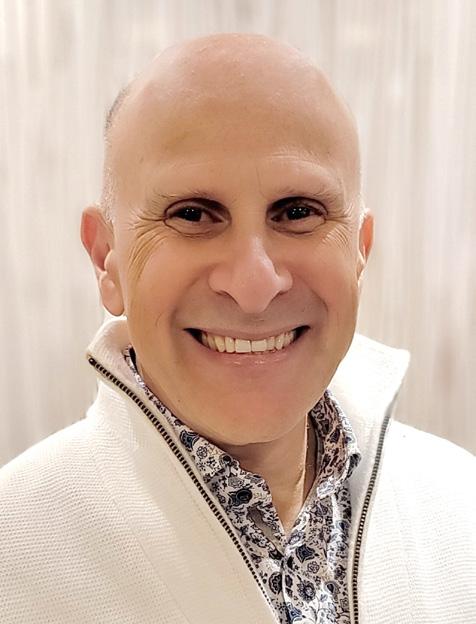



BY SARAH TESLA
How many times have you taken an all-ornothing approach to taking a break from alcohol? How did it go?
After the holidays, many people commit to a “dry January,” only to discover it can be overwhelming and more challenging than expected. There are many reasons why this happens, and it begins with reflecting on our relationship with alcohol.
Alcohol is a psychoactive substance, which means it influences how the brain works, causing changes in mood, awareness, thoughts, feelings and behaviours. Its widespread availability and the stigma surround-






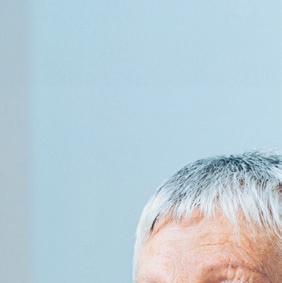
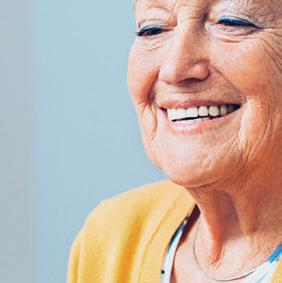


ing substance use often make it harder for people to reflect on and address their relationship with alcohol.
Reducing how much we drink starts with a self-compassionate yet honest look at what alcohol provides for us socially, emotionally and physically. By identifying the factors that influence our alcohol use, we can adopt a more realistic and sustainable approach to making short- or longterm changes.
As a counsellor working with clients who are exploring their alcohol use, I see how each person’s story is unique and shaped by personal circumstances, beliefs and history. For instance, alcohol might be a way to
»17

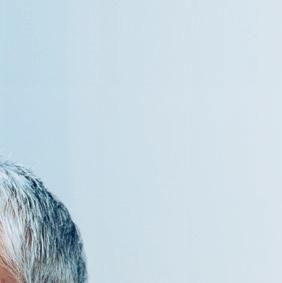

















cope with severe social anxiety or to numb feelings of grief or sadness. Some may have a family history of substance use or a genetic predisposition. Others might use alcohol to unwind after a long and stressful day of work or caregiving.
Whatever the reason, understanding the connections between social, emotional and physical factors is a vital step toward meaningful change. So, what might this process look like?
Start by asking yourself questions about your relationship with alcohol: What role does alcohol play in my life? Does it help me relax, cope with stress or feel more confident? What situations or emotions trigger my urge to drink?
How does alcohol affect me both immediately and over time? Does it temporarily relieve stress but worsen my sleep, mood or health?
What are the benefits and downsides of drinking and how might life improve if I reduced or stopped?
Once you have a clearer picture of your experiences, you can begin setting goals. For example, if someone uses alcohol to manage stress, they might set a goal to replace drinking with an activity like going for a walk. Instead of committing to this change for an entire month, they could start with small, manageable steps, such as trying it out for a few days.
Then do a check-in: Does a walk help reduce stress? Are there other activities that might be more effective? Or would it make sense to start by cutting back to one drink at the end of the day and including a walk?
It’s important to acknowledge that change is rarely simple or straightforward. Progress often comes with setbacks — and that’s entirely normal. The key is to keep returning to your

goals, making adjustments and moving forward, even when it feels difficult.
A self-compassionate mindset helps us stay connected to our deeper motivations and prevents us from getting stuck in feelings of failure or shame. While New Year’s resolutions and “dry January” can be a helpful starting point, meaningful change takes time, patience and persistence. Be kind to yourself as you work toward your goals and remember that every small step you take makes a difference.
Sarah Tesla is a counsellor on the Sunshine Coast who supports the diverse needs of clients in rural and remote communities. This column is informational and is not intended to be a substitute for counselling support or services. If you or someone you know is struggling with their mental health or substance use, please seek professional support.


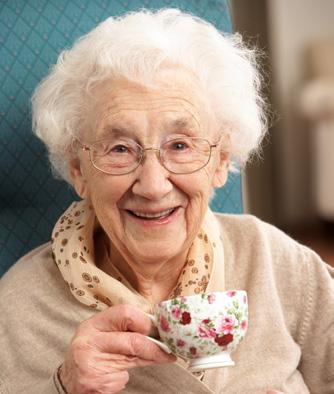



Cold laser therapy can:
• Heal new injuries quicker
• Remodel scar tissue
• Lower chronic pain
• Reduce inflammation
Don’t live with it. We can help. Contact us today.
Foundry is on its way to qathet Regional District.
Foundry qathet will be hosted by Powell River Child, Youth and Family Services Society (Youth and Family), a long-standing local nonprofit.
Foundry centres, a province-wide network of integrated health and wellness services for young people ages 12 to 24, are a onestop shop for free health and social services offered to youth and their families under one roof. The goal is to reach young people early so small problems can be addressed before they become bigger.
Development of Foundry qathet will involve the coming together of existing youth-focused, community-based services, resources and organizations to ensure the centre provides a full range of services with an integrated approach that suits the com-


munity’s highlighted needs.
“Feedback from our community polls has indicated that over 75 per cent of respondents would like Foundry qathet to become a community hub, offering youth a safe, cool space to hang out,” a Foundry media release stated.
“Foundry qathet aims to be a place that youth and families in this region can turn to when they need support. Once Foundry qathet is developed and operational, young people and their families will no longer have to ask, ‘Where can we go for help?’”
Foundry qathet will provide the youth in our community fully funded drop-in services in the following areas: mental health care; substance use services; physical and sexual health care; youth and family peer supports; and social services.
A location for Foundry qathet is on the horizon, according to the release.
“We have been gathering input from the community, stakeholders, service providers and, most importantly, youth.”
For more information, go to foundrybc.ca/qathet.


























Powell River-based Sunshine Coast Health Centre and the Georgia Strait Womens Clinic provide highly personalized addiction, mental health and trauma treatment for male and female clients respectively. Get daily 1-on-1 inpatient or outpatient treatment tailored to your unique needs.

Services include 24 hour-medical service, psychiatric assessment, EMDR, rTMS, psychotherapy, a dedicated group for rst responders and armed forces, and much more.
Various special arrangements available to local rst responders. Call us to nd out more.


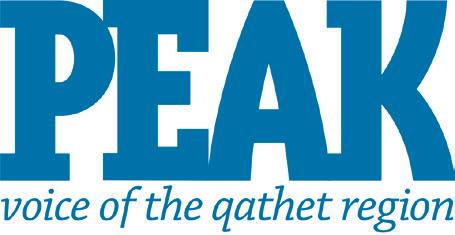
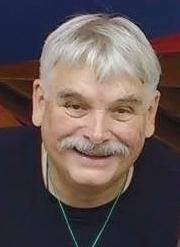
PhilipWilliams October21,1943-December6,2024
ItiswithgreatsadnessthatweannouncethepassingofPhilip RogerWilliamsattheageof81years.Philpassedaway peacefullyathome,withhisfamilybyhisside.
Philleavestomournhisbeautifulandamazingwifeof56 years,Diane,hissonTim(Tara)andhisabsoluteprideand joy,hisgrandchildren,QuinnandLainey,aswellasrelatives nearandfarandmanyfriends.
Philwasakindandgenerousman.Hewasalwaysreadywith asmile,alaughorasong.Wewillmisshimtremendously.
ACelebrationofLifeforPhilwillbeheldonMarch8th,2025, from1−4pmattheCranberrySeniorsCentre.





HME Home Health offers a vast array of mobility and accessibility devices and medical equipment. Items include wheelchairs, power chairs, walkers, hospital beds, mattresses, other durable medical equipment, stairlifts, vertical platform lifts, ramps, and other installed products.
$3,195



The Jazzy Carbon Transport Power Chair combines easy portability with rugged wheels, front-end suspension, and a comfortable seat, making it perfect for both everyday use and travel adventures.
Large Jazzy Carbon stock available on the HME E-Store
Removable joystick for transporting with built in USB charger





Designed to help lift you from a seated position to a standing position effortlessly while still providing comfort and support.
Precise combination of function, style and comfort
Your Lift Chair will be delivered and setup at your home by our in-house delivery & technician teams!






Contact HME via our website by appointment booking, live


Readily Available Resources
Browse our full product catalog and find all the details you need to make the best choice at: